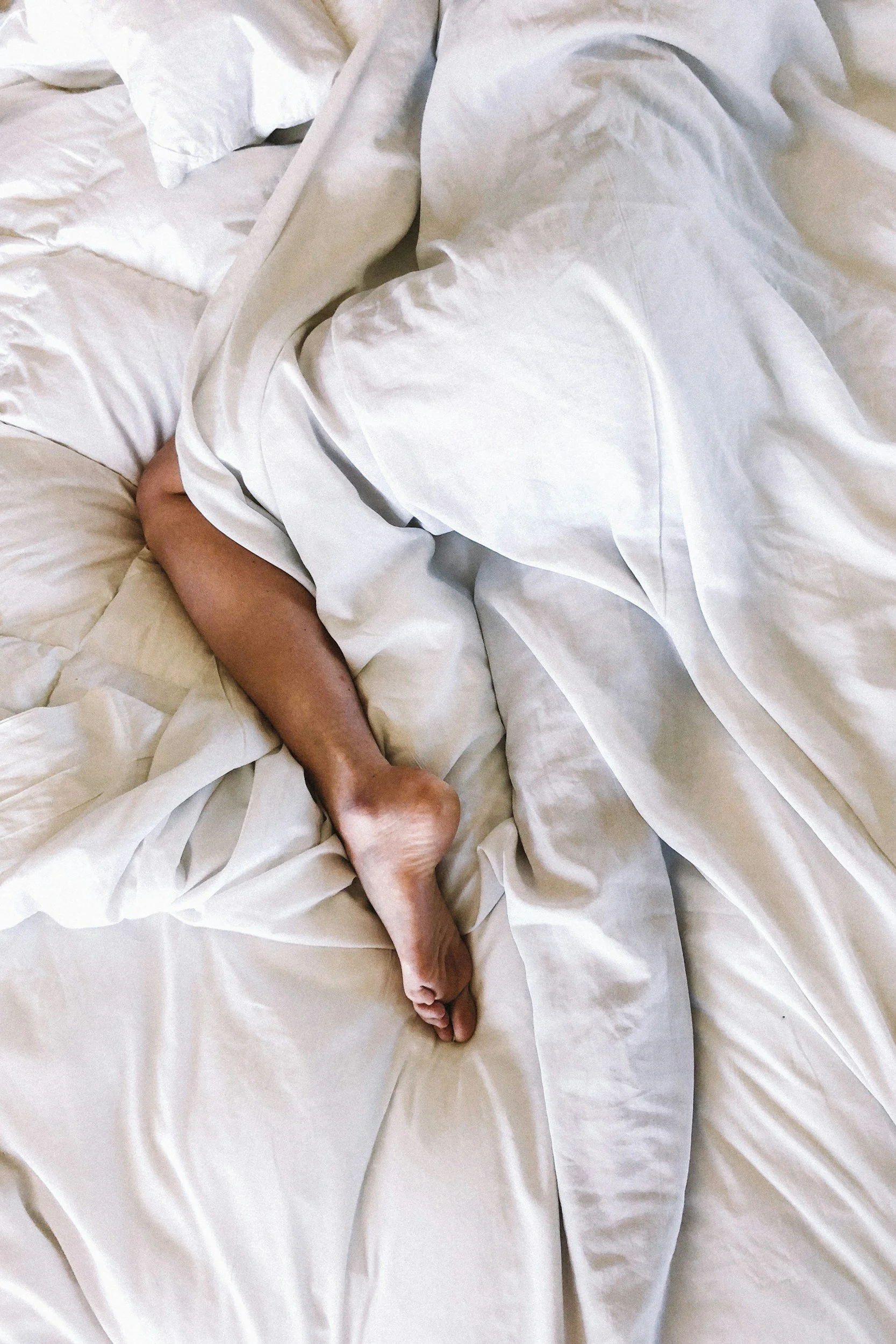Sleep & Sexual Satisfaction: Boost Desire & Rest Naturally
“Better sleep can mean better sex—and better sex can mean better sleep. ”
When we think about improving our sex life, we might focus on communication, attraction, or relationship dynamics—but sleep rarely makes the list. Yet, research shows that the quality of your sleep can deeply influence your sexual satisfaction, desire, and overall sense of intimacy.
As both a sexologist and yoga teacher, I often remind clients that the body’s needs—rest, nourishment, relaxation—are not separate from our emotional or sexual experiences. Sleep is one of the most underestimated ingredients of a fulfilling sex life.
How Sleep Affects Sexual Desire and Satisfaction
Studies consistently show that poor sleep is linked to lower sexual satisfaction and function—for both men and women. In one large study of over 3,000 women, those who reported poor sleep quality were 1.5 times more likely to experience sexual dysfunction (pubmed study link). Short sleep (less than 5 hours per night) was also associated with reduced sexual activity and less satisfaction, especially among postmenopausal women (Frontiers in Medicine study).
But it’s not just about how long you sleep—it’s about how well you sleep. Fragmented or restless sleep can disrupt hormone regulation, mood stability, and energy levels, all of which are vital for sexual desire and responsiveness (Frontiers in Psychology study).
When we don’t rest, our bodies produce more cortisol (the stress hormone) and less testosterone and estrogen, which can decrease libido and make arousal more difficult. Over time, chronic fatigue, irritability, and stress take a toll not only on our sexual health but on our ability to connect emotionally with a partner.
Sex and Sleep Go Both Ways
Interestingly, the connection between sex and sleep isn’t one-directional. Sexual activity—especially when it includes orgasm—has been shown to improve sleep quality and help people fall asleep faster (Journal of Sleep Research study).
That post-orgasm relaxation isn’t just in your head. Oxytocin (the bonding hormone) and prolactin (linked to relaxation and satisfaction) both rise after orgasm, while cortisol decreases. Together, these shifts create the ideal environment for restorative sleep.
So yes—sex can help you sleep better, and sleep can help you have better sex. The two are intimately connected through your body’s natural rhythms (Sleep Science study).
Common Sleep Issues That Affect Sexual Health
Several sleep problems are particularly linked to sexual dissatisfaction:
Insomnia: People who experience frequent difficulty falling or staying asleep report significantly lower sexual satisfaction.
Sleep Apnea: Especially in women, obstructive sleep apnea is associated with reduced arousal and orgasm difficulties.
Chronic stress and anxiety: These can both disturb sleep and suppress sexual desire.
Shift work or irregular sleep patterns: Disrupting the body’s natural circadian rhythm can throw off hormones tied to both sleep and sexuality.
How to Support Both Sleep and Sexual Well-being
Prioritize sleep quality, not just duration.
Create a soothing bedtime routine—dim lights, gentle stretches, or slow breathing exercises (like “noodle breathing,” where you exhale tension from each part of your body).Be mindful of your body.
Practices like restorative yoga and body scanning can help you tune in to physical sensations, reduce stress, and increase awareness of your body’s needs—both in bed and beyond it.Address stress before bedtime.
Journaling, guided relaxation, or mindful touch with a partner can calm the nervous system and prepare both mind and body for rest.Communicate with your partner.
Sleep and sexual issues are deeply interconnected—talking openly about fatigue, stress, or desire changes can help reduce tension and foster connection.Seek professional support when needed.
If sleep disturbances or sexual concerns persist, exploring them with a therapist can help uncover the underlying factors—whether physiological, relational, or emotional.
The Mind-Body Connection
Sexuality and sleep both depend on balance within the nervous system. When we’re chronically in “fight or flight,” the body prioritizes survival over pleasure and rest. When we shift toward calm, connected states—through mindfulness, breathwork, touch, or relaxation—we create the physiological foundation for both deep sleep and satisfying sexual connection.
So, the next time you find yourself struggling with desire or exhaustion, take a step back and ask: What does my body need right now? Sometimes, the answer isn’t more effort—it’s more rest. Your body isn’t working against you; it’s constantly signaling what it needs for balance, connection, and pleasure. Listening to those signals with compassion is where real intimacy begins.


